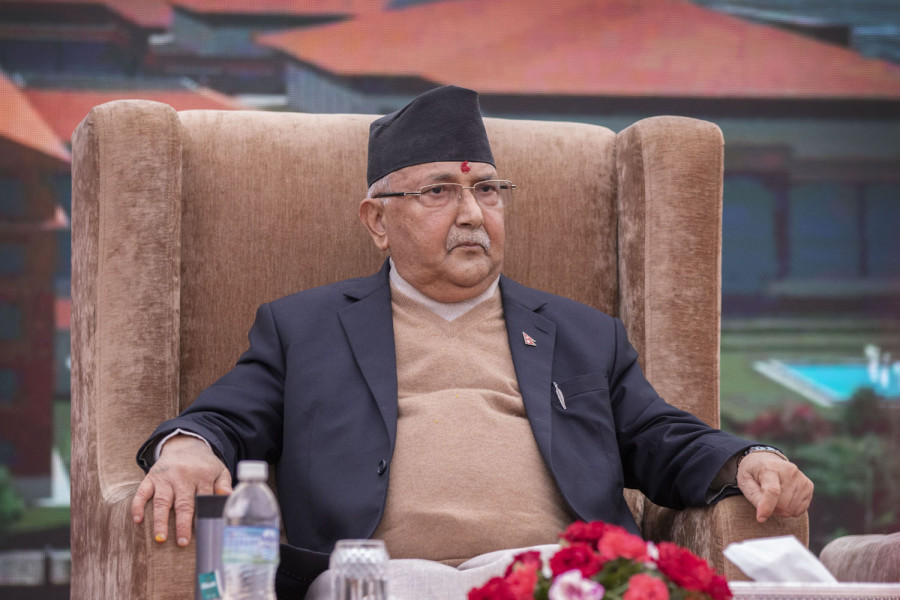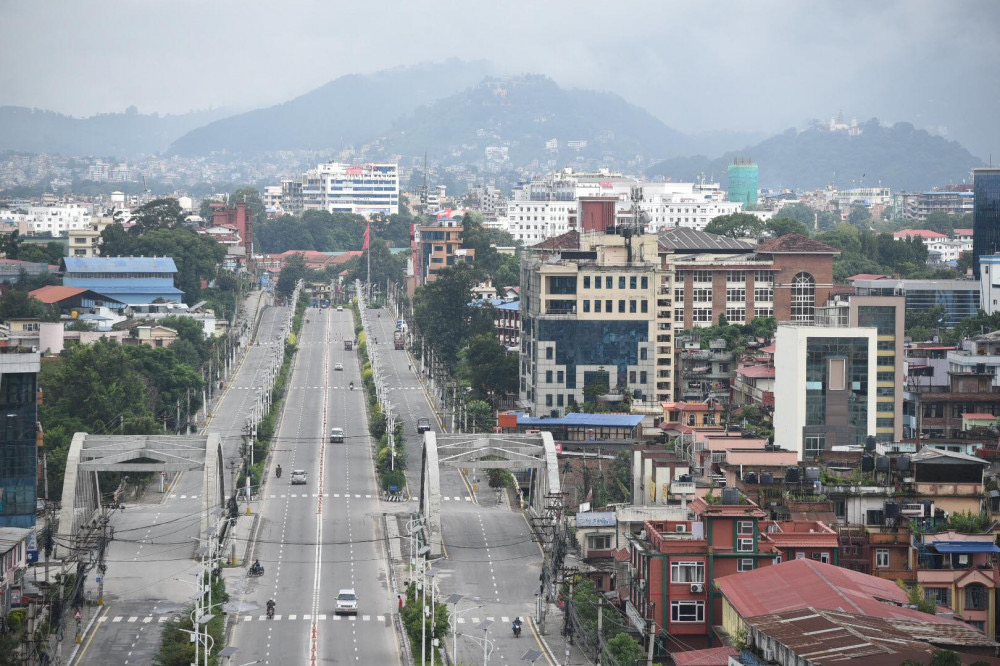National
How government defied science and disregarded experts as Covid-19 spread
Even after 146 deaths and over 31,000 cases, the Oli administration has not formed a national committee led by a specialist and it continues to take decisions on an ad-hoc basis.
Arjun Poudel
On June 18, when Nepal’s number of Covid-19 cases soared to 7,848 and the death toll reached 22, Prime Minister KP Sharma Oli was downplaying the threat of the coronavirus and peddling dubious cures that have no medical standing.
At the National Assembly, Oli delivered a long lecture, trivialising Covid-19, a disease that has brought the world to its knees.
[Read: When Oli speaks before Parliament, there is no telling what he will say]
“Corona is like the flu,” said Oli. If contracted, one should sneeze, drink hot water and drive the virus away.”
Three months before Oli’s claims, the World Health Organisation on March 11 had declared Covid-19 a pandemic. There were over 118,000 coronavirus cases in over 110 countries and territories around the world and the UN health agency warned that there was sustained risk of further global spread.
That, however, was not the first time Oli was making light of the deadly virus that has now killed 803,808 people across the world and infected 23,152,472.
The prime minister, however, had made it a habit of using his bully pulpit to make unsubstantiated claims like Nepalis have strong immunity and that drinking turmeric water could cure the disease.
Today, when the number of Covid-19 deaths has reached 146, with 31,117 positive cases reported in the country, the Oli administration is at its wit’s end.
[Read: How the government got lost in its fight against the pandemic]
Public health experts and even some ministers admit that the Covid-19 surge is also due to the government’s disregard for experts’ warnings and Oli’s defiance of science, facts and truth.
Dr Baburam Marasini, former director at the Epidemiology and Disease Control Division, said the Oli government has shown an uncanny loathing of experts even when the country is faced with an emergency.
“Instead of paying attention to experts' advice and implementing their suggestions, authorities were rather bent on prosecuting them,” Marasini told the Post. “Warnings against Dr Sundarmani Dixit of legal action when he called for expanding tests and action against Dr Sher Bahadur Pun are just a few examples.”
[Read: Inside the Health Ministry during the pandemic]
Seven months after the first Covid-19 case was detected, the Oli government has not set up a single committee that is led by an expert as the national coordinator.
The Covid-19 Crisis Management Committee, which is tasked with fighting the virus, does not have a single individual with expertise on health-related issues.
The organisational structure of the committee, led by Defence Minister Ishwar Pokhrel, has the prime minister at the top and is filled with politicians.
Ministers for Home Affairs, General Administration and Federal Affairs, Finance, Industry, Commerce and Supplies, Foreign Affairs, Agriculture and Livestock Development, Energy and Water Management, Culture, Tourism and Civil Aviation and Health and Population are members in the directive committee.
The facilitating committee has secretaries and joint-secretaries from the said ministries, officials from the security agencies and their representatives.
Experts say some of the countries did well in the fight against the virus because of the political will of their governments, their reliance on science and trust on the people.
Countries like Germany and New Zealand have been largely successful in combating the virus for one common reason—both relied on science.
German Chancellor Angela Merkel, a scientist, followed science and evidence-based reasoning and remained honest with her citizens in the fight against the pandemic. She told her countrymen that up to 70 percent of the population could be infected from the coronavirus and appealed to them to take the risk seriously at the very beginning of the spread of the pandemic.
Her government took the infection seriously, focussed on testing, and tracing and isolating. Life is becoming normal now and millions of children are returning to schools.
New Zealand's Prime Minister Jacinda Ardern’s tough response may have faced criticism in the beginning for one of earliest and toughest self-isolation measures in the world, but she offered a model response of empathy, clarity—and above all trust in science.
Several Asian countries—Singapore, Taiwan, South Korea and Vietnam among others—have also successfully contained the contagion because they put in place national plans and listened to expert advice.

Narayan Prasad Bidari, a former member secretary of the Covid-19 Crisis Management Centre, said that the government did squander the opportunity to make necessary preparations to fight the pandemic.
“The political leadership was confused,” said Bidari. “Leaders told the government that the issue was technical and therefore joint efforts were necessary. The political leadership did not have any concrete idea on fighting the pandemic.”
The prime minister has so far held consultations with experts twice, but those who participated in the consultation meetings have expressed doubts if they were indeed invited for suggestions, as no one has paid heed to those.
According to Bidari, the Health Ministry used to be in touch with public health experts to discuss issues related to the pandemic. He, however, said he was not updated about those meetings.
Dr Bhagwan Koirala, who has participated in a few such meetings, said that he has stopped attending them.
“I have realised they are not going to take my suggestions,” Koirala told the Post a few weeks ago.
While public health experts say there were missteps galore on the part of the government, a minister told the Post that things took a turn for worse when the prime minister started acting like he was the government.
“The problem began with the prime minister as he failed to assign proper responsibilities to ministers and make them accountable for their works,” said the minister who spoke on condition of anonymity.
“Then some other problems started to emerge. Health Minister Bhanu Bhakta Dhakal was given the responsibility of almost everything—even tasks that were to be performed by the foreign ministry and the finance ministry were given to Dhakal.”
Dhakal, who was embroiled in a corruption controversy, however, was not functioning on his own, multiple Health Ministry officials had told the Post in June.
“The deputy prime minister [Pokhrel] was given a major role, but he failed. The prime minister himself then took the charge,” said the minister. “But the prime minister failed to take proper steps.”
Pokhrel too was pulled into controversy regarding the procurement of medical supplies to fight the virus.
According to the minister, the government also failed to take citizens into confidence and convince them.
“The lockdown was lifted abruptly, without any plan,” he said. “A gradual lifting of the lockdown by taking people into confidence could have helped control the virus.”
After there was a sudden spike in Covid-19 cases when the lockdown was lifted on July 21, the Oli administration relied on chief district officers, empowering them to take measures like prohibitory orders to contain the virus. More than 40 districts are currently under virtual lockdown. When the lockdown was imposed on March 24, there were only two Covid-19 cases in the country. By the time it was lifted, 40 deaths were confirmed and there were 17,994 cases.
Kathmandu, Bhaktapur and Lalitpur have been put under prohibitory orders since Wednesday midnight.
Experts are wondering if the prohibitory orders alone will be effective in breaking the virus transmission chain if authorities fail to utilise the period to expand testing, contact tracing and isolating the infected.
The authorities are still continuing to defy the fact that only experts can deal with such a crisis, according to officials.
An official at the Department of Health Services summed up government activities in the fight against pandemic, repeating what is attributed to Albert Einstein.
“The government is doing the same thing over and over again and expecting different results,” the official told the Post requesting anonymity for he feared reprisals.
“The government has yet to make a national network of specialists and technicians to fight the virus in an effective way.”
According to the official, the Epidemiology and Disease Control Division, which is responsible to contain the epidemic, does not have a single epidemiologist.
“The government can bring an ordinance to split political parties, but it does not want to do anything to hire experts,” said the official.
“But it is reluctant to hire experts and specialists and form a national committee led by an expert. Nor is it paying heed to what experts are saying.”
Tika R Pradhan contributed reporting.




 14.12°C Kathmandu
14.12°C Kathmandu














